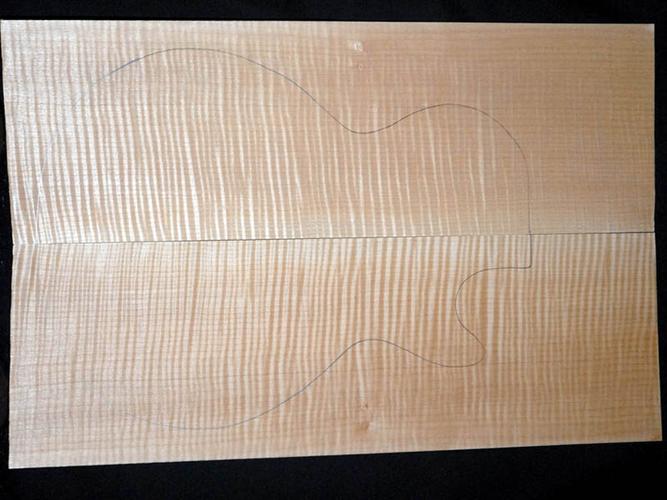Results 1 to 10 of 55
Thread: Is anyone using a Planer ???
Hybrid View
-
03-10-2012, 06:55 PM #1At this point in time...




- Join Date
- Jun 2007
- Location
- North Idaho Redoubt
- Posts
- 27,101
- Blog Entries
- 1
Thanked: 13249 Is anyone using a Planer ???
Is anyone using a Planer ???
Is anyone using an actual Planer to thin down their scale blanks ??? I need to know if there is one out there in an affordable range say < $1000 that can plane Small hardwood pieces, acrylic, etc: down to 1/8 inch sheets pretty accuratly...
Please only answer if you have actually worked with say 1x6 up to maybe 2x8 inch pieces of material..
So if I take a scale blank that is say 1.5 x 7 x 3/16 and send it through I would get a 1.5 x 7 x 1/8 and is it repeatable so that the second scale blank that goes through would be damn close ????
Thanks in advance for any info
-
03-10-2012, 07:39 PM #2

While I don't have any experience using planers to make thin stock I have used a surface sander like this to make thin stock in the past: Buy JET Benchtop Sander Model 10-20 Plus at Woodcraft
-
03-10-2012, 07:46 PM #3At this point in time...




- Join Date
- Jun 2007
- Location
- North Idaho Redoubt
- Posts
- 27,101
- Blog Entries
- 1
Thanked: 13249
Thanks Theseus I will look at in in person when I get down to Spokane next...
I like the Jet quality
-
03-10-2012, 08:19 PM #4Poor Fit

- Join Date
- May 2010
- Posts
- 4,562
Thanked: 1263
My Dad used to have a Makita I believe..never personally used it but remember him doing so and it worked very well. I remember him getting down to some quite thin pieces.
-
03-10-2012, 09:23 PM #5

I have a Dewalt, and I can tell you it will plane to thickness quite well and will repeat the process but if a piece shorter than one foot is put in, it can spin and make a mess. I have tried it. Also sometimes no matter how careful you are it will clip the end when starting so the piece would need to be at least an inch or more longer than you need. In other words if you want to get two scales out of a foot long piece it should be at least 13 or 14 inches long. I learned the hard way not to put short pieces in. Scared the H-- out of me.
Last edited by mackie; 03-10-2012 at 09:32 PM.
-
03-10-2012, 09:40 PM #6

I use a mastercraft 12" from canadian tire... If you could get your hands on one (maybe a challenge), you would be happy with it, especially the 250$ price tag....
Scale blanks are too thin for my planer to do its job, so I run them through on top of 2 interlocked pieces of hardwood, and I finish in 1/64th incriments.
Also, im not sure you can plane acrylics, I tried recently with a peice of UHMW and it made a mess ...
-
03-13-2012, 12:15 AM #7


199$ on sale at home depot
-
The Following User Says Thank You to epd For This Useful Post:
gssixgun (03-13-2012)
-
03-13-2012, 02:33 AM #8Senior Member

- Join Date
- Sep 2011
- Posts
- 224
Thanked: 20
Check this out:
G0459 12" Baby Drum Sander
-
The Following User Says Thank You to Joegags For This Useful Post:
gssixgun (03-13-2012)
-
03-13-2012, 02:43 AM #9At this point in time...




- Join Date
- Jun 2007
- Location
- North Idaho Redoubt
- Posts
- 27,101
- Blog Entries
- 1
Thanked: 13249
Yep Joe I think that is the right type of machine, although the Minimum size of stock is better on the Jet that theseus linked to
I will look at them in person and see what is what
-
03-13-2012, 03:32 AM #10

Not wanting to be pedantic or anything but the correct term for splitting a piece for near identical grain pattern is bookmatching, and the key word here is near, because the kerf of any blade used will remove material therefore the two halves will never match identically, even splitting the timber which is another time honoured way of doing it still results in the material having to be planed, so whatever way one looks at it there will be material lost.
The differences are glaringly obvious when used in this application,

However with razor scales there is a degree of separation ie the gap for the blade so the difference will be less noticeable, in my experience of 25 odd years of guitar making by far and away the easiest and most accurate method of reducing material to a thickness for scales would be to use a small bandsaw with a thin blade to cut the timber and this STEWMAC.COM : Luthiers Friend Sanding Station or something similar to fine tune the thickness, with a bit of inventiveness a home brew version is not difficult to make, and the thickness can be accurately dialled in, its simple and repeatable and works on small lengths.


 20Likes
20Likes LinkBack URL
LinkBack URL About LinkBacks
About LinkBacks









 Reply With Quote
Reply With Quote
